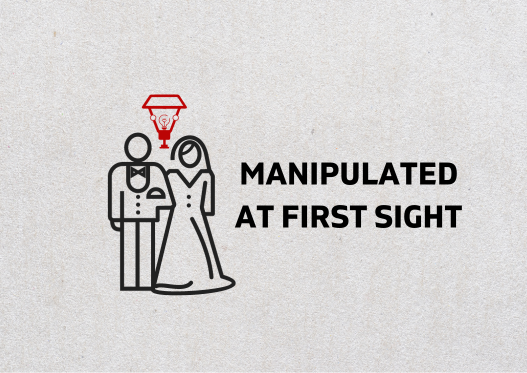There’s nothing quite like the proverbial water cooler conversation between therapists the day after certain episodes of reality TV! And over the last couple of months, what we’ve all been talking about (and ranting about) is, of course Married at First Sight (MAFS)!
This is a show that has gone from (at best) a guilty pleasure, and some innocent “well at least I’m not that bad“-ing, to a “what not to do” in relationships guidebook and it has prompted me to write this post.
This season, sadly, we again have some walking red flags (even a female one this time!). But one participant in particular is a textbook gaslighter and manipulator and I really hope everyone watching can see that!
BUT as so often happens, even those who can see the manipulator for what he is (even those right there in the room with him) are still aiming a lot of their (understandable) confusion and frustration at his long suffering partner because she keeps choosing to stay. However scripted MAFS is (and wow I hope it’s scripted!), it’s actually portraying this scenario perfectly because we so often do end up blaming the victim/survivor for staying, instead of blaming the abuser for abusing. And when we do that, we play right into the abuser’s hands.
What is gaslighting?
For the record, gaslighting refers to an insidious form of emotional abuse in which a person manipulates and distorts another person’s perception of reality, causing them to doubt their own memory, judgment, and sanity. And the reason we can’t undertand the choice they make to stay, is because we’re not stuck in the gaslighting environment. We have the benefit of perspective, while the whole point of gaslighting, is to make the victim doubt their own mind and lose touch with their sense of self. This keeps them off balance and in a constant state of stress that is only ever partially relieved by ‘pleasing’ (or more aptly, appeasing) the perpetrator.
The Origins of the Term
Did you know, that the term “gaslighting” comes from the 1944 psychological thriller, “Gaslight”? It’s a film about a woman whose husband manipulates her into believing she is insane to get his hands on her inheritance. But before that movie came out and the term spread into common usage, there were two other names for that kind of systematic emotional manipulation and abuse.
“Crazy-making”, and “brain-washing”.
Which brings me to the point of this post. People who are being gaslit or emotionally manipulated are literally being brain-washed. So is it any wonder that, from the outside, their actions seem so out of character, frustrating or just plain “crazy”?
So what can we do?
Those who are trapped in a gaslighting relationship need our care and compassion and above all our patience while they regain their perspective and re-find their voice, because they’re confused and vulnerable enough as it is.
If we then attack them for their choices, we’re just making them doubt themselves further and (usually) sending them right back to the abuser who will tell them “its just because they’re jealous of us”, or “they just don’t understand how close we are”.
So while watching someone we care about being manipulated is excrutiatingly painful to watch, I’m really sorry to say that you can’t save them from it all on your own, the brain-washing often runs too deep. Instead, we have to:
- respond with gentle and open curiosity,
- validate them and their feelings (point out all the good things about them and what they do)
- LISTEN to where they’re at and what they need,
- encourage them to seek additional support, e.g., “This sounds like it would be so confusing, first he says this, then 2 minutes later almost the complete opposite. Have you thought about talking to a therapist about this? They might be able to help clear up some of that confusion between you.”
(Please note, i’m not saying the problem actually lies between the two of them – gaslighting is all about the perpetrator – but oftentimes that would be too big a leap for the victim to take straightaway).
This is why a trauma-informed therapist is often the only antidote to gaslighting and why several of our clinicians here at 12 Points Psychology have undertaken additional training in this important (and often misunderstood) area.
We can provide objectivity and perspective, empower you to (safely) find your voice and manage the (sometimes long) road back to owning your own brain again.

Resources & Additional Help
So, if you would like further information or support on any of this, please check out some options below:
- if you think you may be experiencing emotional abuse, or are recovering from emotional abuse, please get in touch via our enquiry page HERE and make a time to speak to one of our therapists with experience in this area, including: Jessica, Mathew, Annie, and Judy.
- if you’re interested in learning more about what constitutes a healthy versus an unhealthy relationship, check out the recording of our Couples Counselling webinar HERE (including video clips of MAFS moments where we point out certain unhealthy behaviours).
- if you’re an allied health professional interested in supporting your clients who may have experienced emotional abuse, please check out our Family Violence webinar with Carmel O’Brien via our Professional Development Library HERE.
If you would like to talk to someone about anything this post brings up for you, please contact us on 03 8799 3907 or email intake12points@gmail.com
Danielle Graber
Director & Clinical Psychologist

